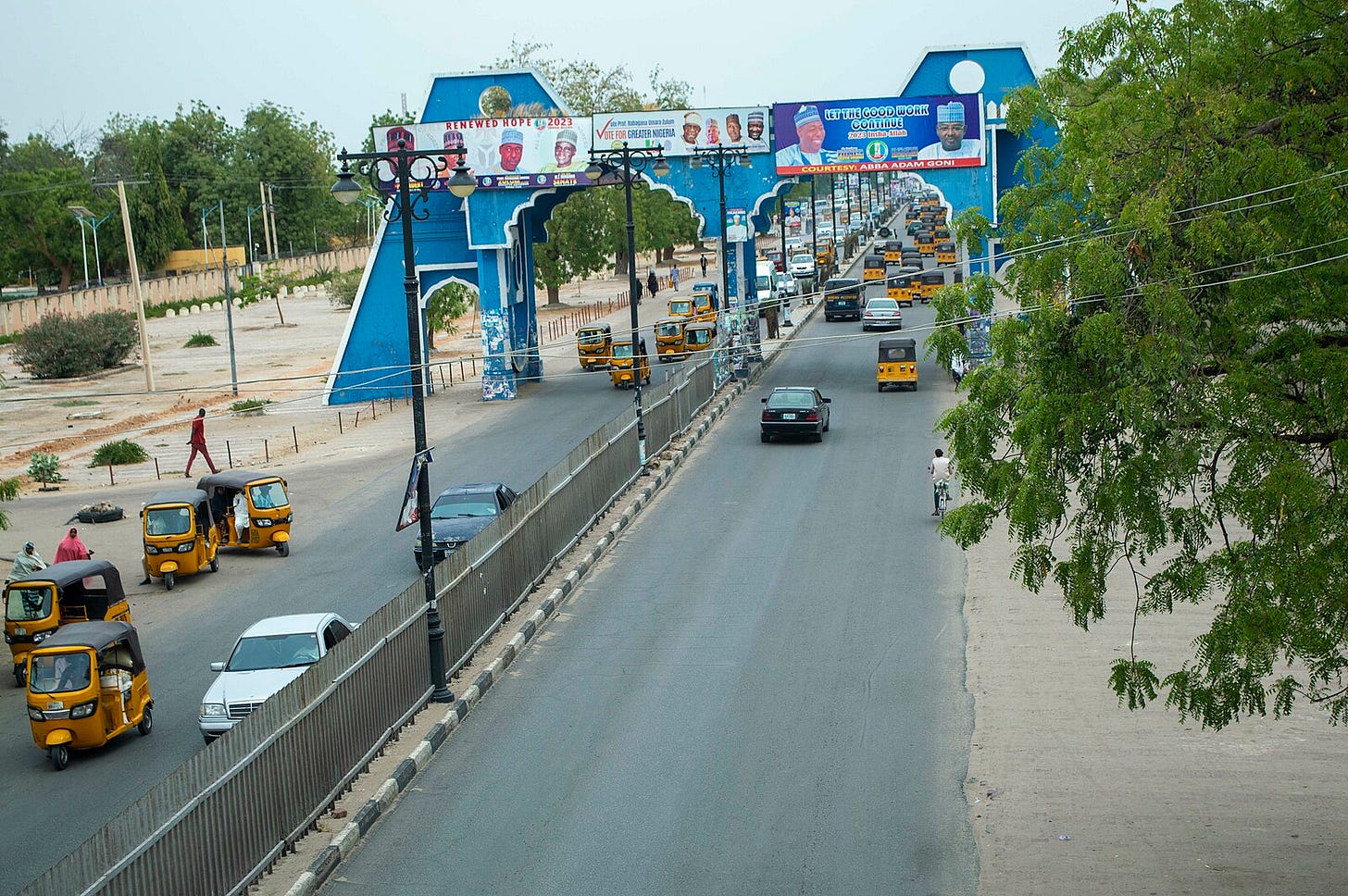Dakar to Riyadh: Links for 5/2/2025
News and analysis from the Sahel, North Africa, the Horn, and the Middle East
You can find last week’s links here.
Sahel and West Africa
Senegal’s Prime Minister Ousmane Sonko has constituted a committee for centralizing state spending, with the aim of reducing redundant purchases.
Mali’s military head of state Assimi Goïta appears set to continue as president until at least 2030. The authorities are also moving towards banning political parties.
Morten Bøås and Viljar Haavik in The Conversation:
In a recent paper, we draw on our extensive fieldwork experience in Mali. We argue that Goïta has crafted a new social contract based on a strongman narrative, portraying himself as Mali’s defender. The regime has used dissatisfaction with international interventions to frame Goïta as an “exceptional man” in “exceptional times”, in ways that resonate with Malian myths and traditions.
The Associated Press’ Mark Banchereau: “Thousands Rally in Burkina Faso in Support of Military Junta Following Alleged Coup Attempt.”
Tanguy Quidelleur in AfriqueXXI on state violence in Burkina Faso.
The Economist: “Ivory Coast Is Gearing Up for an Unfair Election.”
Togo will hold municipal elections on July 10.
Here is a mini-roundup on insecurity in Nigeria’s northeast:
Reuters’ Ope Adetayo: “A surge in attacks in Nigeria's northeast by Boko Haram and its splinter rival ISWAP has raised fears of a major comeback by jihadists, whose tactics now include armed drones and explosive devices planted on major roads, security experts said.”
Eromo Egbejule in The Guardian: “Fears of Boko Haram Comeback Stir in Nigerian Birthplace of Maiduguri.”
Zubaida Baba-Ibrahim at The New Humanitarian: “As Boko Haram Threat Grows, USAID Cuts Cripple the Economy and the Response.”
Alex Berry at DW: “Nigeria State Leaders Demand Action against Islamist Attacks.”
Camillus Eboh at Reuters: “Nigeria Appoints New Commander after Renewed Militant Attacks in Northeast.”

North Africa
Morocco’s main Islamist party, the Party for Justice and Development, held its party congress on April 26-27 and re-elected former Prime Minister Abdelilah Benkirane as its leader.
TelQuel on Morocco’s “pragmatic diplomacy” with the Alliance of Sahel States.
Adlène Meddi in Le Point on how a proposed law concerning “general mobilization” (i.e., of people to serve in the military in times of crisis and war) is fueling speculation and debate in Algeria - as the country’s authorities see tensions and threats on the borders with Morocco, Mali, and Libya.
Nawaat with a report on “racist militias for hunting migrants” in Tunisia.
A new book by Stephanie T. Williams, published by Hurst: Libya Since Qaddafi: Chaos and the Search for Peace.
Greater Horn of Africa
Mai Hassan and Ahmed Kodouda in Foreign Affairs on the state of Sudan’s war and the prospects for a negotiated settlement:
The country’s de facto partition is already beginning. The map of territorial control in Sudan today suggests a bifurcated country, with the west—apart from El Fasher, North Darfur’s capital—largely under the RSF’s [Rapid Support Forces’] grasp, and the east, north, and center of the country held by the SAF [Sudanese Armed Forces]. In February in Nairobi, the RSF and its partners signed a transitional constitutional agreement paving the way for the declaration of a parallel government over the large swaths of land they control.
BBC Arabic’s Muhammad Muhammad Uthman on the anti-revolutionary discourse of the SAF’s Abdel Fattah al-Burhan, and the pushback he is getting from civil society.
Beniam Darge in the Addis Standard: “Ethiopia’s War on its Future: A Generational Crisis in the Making.”
Samuel Getachew at Semafor: “Ethiopia’s State-Owned Ethio Telecom Records Lackluster IPO.”
The BBC’s Wycliffe Muia: “Kenyan MP Shot Dead in 'Targeted' Attack in Nairobi.”
Reuters: “Somalia's Prime Minister, Hamza Abdi Barre, reshuffled his government on Sunday, appointing a new defence minister as his government tries to stem an Islamist insurgency.”
Abdimalik Ali Warsame at Geeska: “Israel, Ethiopia and the Somali Question.”
Mashriq
The BBC’s Simona Foltyn: “Life Inside Iraq's 'Forbidden Zone' Controlled by Turkey.”
Miriam Berger and Júlia Ledur for the Washington Post: “Israel Redraws Gaza Map, Limiting Palestinians to a Third of the Enclave.”
Kersten Knipp for DW: “The Palestinian Authority has agreed on a potential successor for the 89-year-old Palestinian president, Mahmud Abbas. Will Hussein al-Sheikh be able to instigate change in the Palestinian territories?”
The Tahrir Institute for Middle East Policy addresses the “Externalization of [European Union] Migration Control to the MENA Region” with explainers on Tunisia, Egypt, and Lebanon.
UN News: “The UN Special Envoy for Syria, Geir Pedersen, voiced deep concern on Wednesday over the recent surge in violence across Syria, particularly in the suburbs of Damascus and in Homs.”
The Associated Press’ Ghaith Alsayed and Kareem Chehayeb: “Syrian Druze Spiritual Leader Slams Government over Deadly Sectarian Clashes.”
Ryan Grim and Murtaza Hussain at Drop Site: “Pentagon May Have Drawn on Anonymous Social Media Accounts in Planning Deadly Yemen Attack.”
The World Food Program on food insecurity in Yemen:
In March, 57% of households were unable to meet their minimum food needs across Yemen, with severe food deprivation (Poor Food Consumption) rising significantly Year-on-Year. Ramadan and partial salary payments offered some relief, but the seasonal improvement was weaker than previous years.
Javier Blas at Bloomberg: “Understanding the Unlikely Saudi Push for Lower Oil Prices.”



